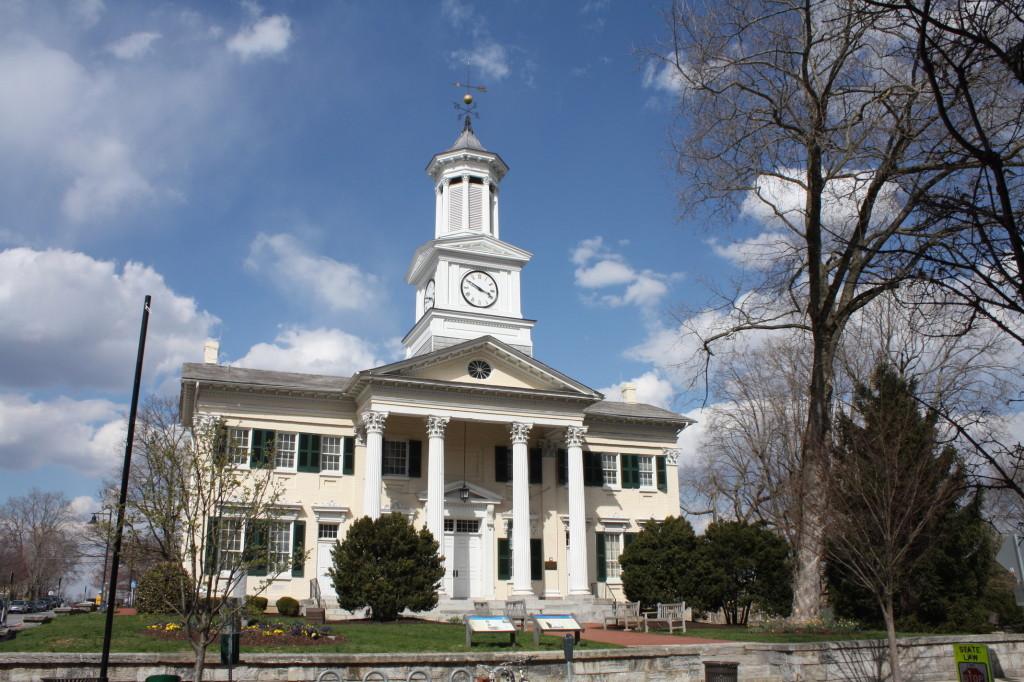(THE PICKET) — Spending on Shepherd University student activities could be cut up to 20 percent next year because of a shortfall in West Virginia revenue, according to budget proposals outlined by the Student Government Association.
The University is confronting a $2 million deficit in fiscal 2017 and everything is on the cutting board as Shepherd officials and student government seek to tighten spending. Of three spending plans proposed by student government, the one featuring $23,558 in cuts from student activities is said to be the most likely to pass.
Under the proposal, the student radio station, WSHC, would have its budget slashed by 20 percent, or $8,526 for a total spending plan of $34,103. Music and band would have its budget cut by 9.05 percent, or $6,119; The Picket would have its budget cut by 8.26 percent, or $3,051; the community service budget would be cut 7.99 percent, or $2,555; theater would have its budget cut by 7.87 percent, or $2,389; the San Merci budget would be cut by 7.41 percent, or $549; and debate would be cut 3.64 percent, or $369.
The only budget that would not be cut is study abroad, which would receive $4,000, the same allocation as fiscal 2016. The Rude Mechanicals’ budget would be raised 2.56 percent, or $100, to $4,000.
In response to the cuts, SGA is preparing a letter to the West Virginia legislature that will be presented at its Tuesday, April 12 meeting making the case that Shepherd’s budget should not suffer. The letter will be sent to the legislature so it can consider it before budget talks begin July 1.
Higher education spending across the state is expected to be slashed next year because of an anticipated fiscal 2017-2018 $466 million shortfall in state revenue. This year West Virginia ran a $353 million deficit, according to the Charleston Gazette.
“We haven’t been in a crisis like this in 40 years,” said Delegate Stephen Skinner, of the 67th West Virginia legislative district. Skinner spoke to the SGA April 5 in an attempt to explain the state fiscal crisis.
Many economists in the state attribute West Virginia’s revenue woes to the collapse of the energy industry and steep tax cuts that occurred beginning in 2007. The state eliminated the business franchise tax and grocery tax and lowered the corporate tax rate from 9 to 6.5 percent in a bid to make the state more attractive to business. Together, the amount of cut revenue these taxes collected amounted to $354 million, enough to eliminate the current budget deficit with a $1 million surplus.
Officials said that boosted economic growth would make up for the loss in tax revenue, however, the bulk of corporate taxes collected in the state come from coal companies who have suffered severely from the collapsing price of coal and in many cases filed for bankruptcy. In a state with an economy as heavily dependent on one industry as West Virginia, this was devastating and more than made up for any business growth that may have happened otherwise.
Skinner said the possibility that the state would raise or reinstate old taxes was off the table, and to make up for the budgetary shortfall, at least in part, possibly “enormous” cuts to the higher education budget were on the way, potentially upwards of 10 percent. This follows a trend of cuts to higher education every year for the past four years. Shepherd University receives 13 percent of it’s funding through the state government.
At the meeting, the SGA executive board presented the senate charts depicting how three possible budget scenarios will impact the budgets for student organizations in the coming year.
West Virginia’s Public Employee’s Insurance Agency, which provides health insurance to state employees, is also on the chopping block. For the program to remain solvent it will have to increase premiums and lower benefits to enrollees, effectively amounting to a pay cut, according to Skinner.
There is also talk of cutting or phasing out the promise scholarship as soon as next year. A move that would be devastating to thousands of in-state students who made high marks in high school and rely on it to afford college.
Shepherd officials have already announced that tuition for fall 2016 could be raised as much as 5 percent. Dining and housing costs are also to rise.
While taxes won’t technically be increased, the cost of the cuts is being deferred to prospective and current college students and state employees, including the faculty of Shepherd and other universities, as a sort of de-facto tax being placed on the shoulders of people that can do the most to bring West Virginia toward a prosperous future, Skinner said.
Skinner pointed out that every time tuition is raised, fewer people can attend college. Even those who can attend are often saddled with an increasing debt burden that may take years or decades to pay off, preventing them from fully reaping the economic benefits of their hard work, and making it harder to own a home or raise a family.
He also stressed the importance of having an educated society, saying that the best and brightest don’t need it to be made harder to succeed. Depriving the people of West Virginia access to high quality higher education would reduce the availability of skilled and educated citizens and only further compound the state’s economic problems into the future.
“You are a constituency with a lot of power,” Skinner said.

